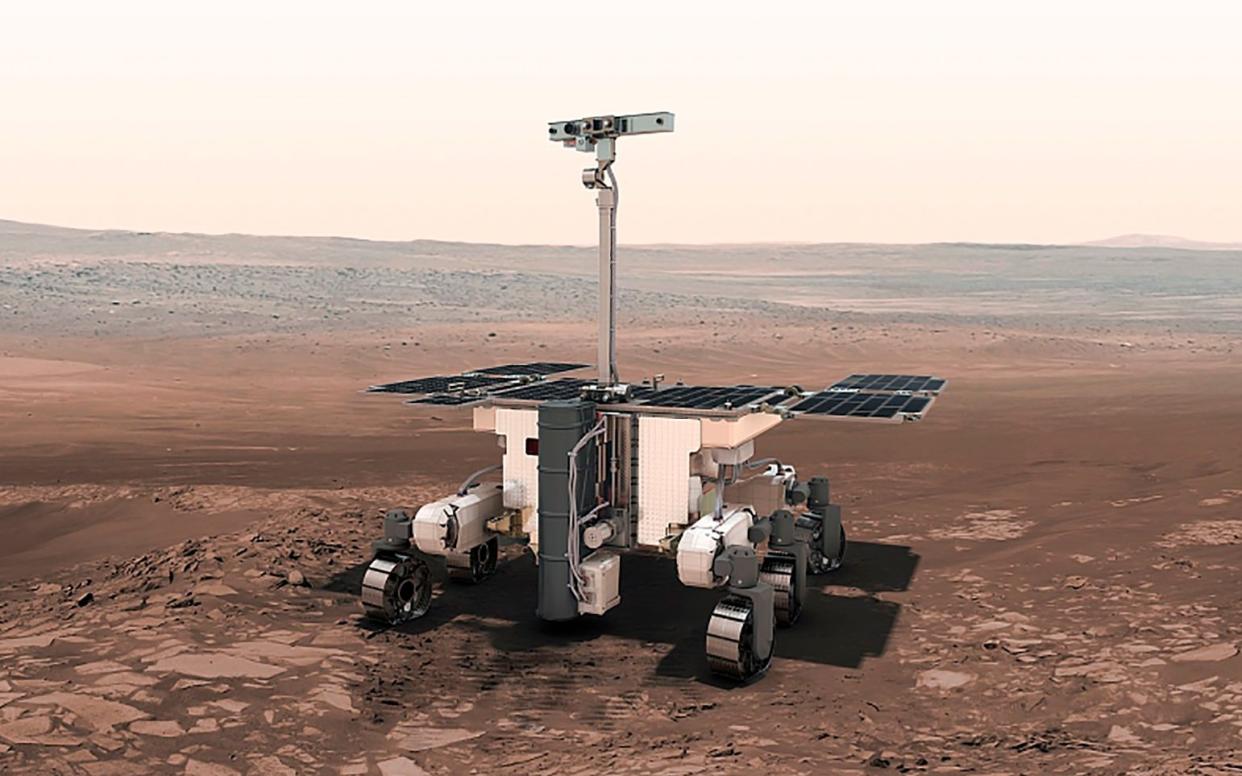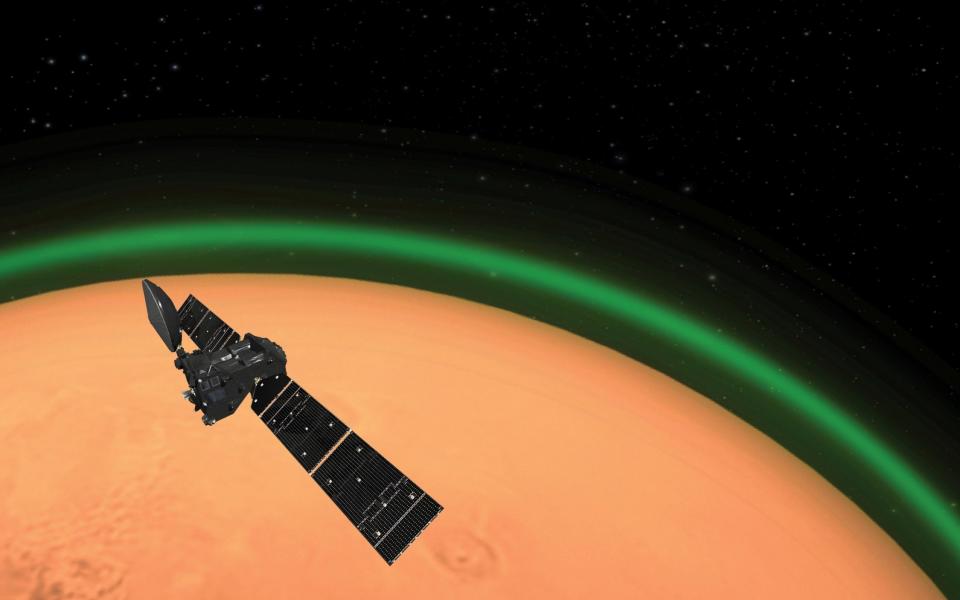Britain steps in to keep Mars rover mission rolling

When Russia invaded Ukraine, few could have envisaged that it might prevent life being discovered on Mars.
The ExoMars rover mission – a joint venture between the European Space Agency (ESA) and Russia’s Roscosmos – was scheduled to launch in September 2022 with the aim of drilling down into the Red Planet in search of evidence of past habitation.
If it had lifted off on time, we may already know that life once thrived on Mars, but the mission was mothballed as relations with Russia soured, leaving Europe struggling to plug critical technical gaps.
Now the UK Space Agency has stepped in to provide £10.7 million to replace a crucial Russian instrument that will pick out the most promising spots for finding life, allowing the mission to launch in 2028.

Dr Paul Bate, the chief executive of the UK Space Agency, told The Telegraph: “This is the best opportunity to find if past life once existed on Mars.
“The really key bit is that once the rover has landed and trundles out and looks around, it needs to find the right spot to drill down.
“And this instrument can look at the infrared signatures of different rocks and say ‘over there’. It’s like getting to a city and wanting to go out to eat, and instead of walking around every restaurant checking the menu, you look on Google Maps first.”
Dr Bate added: “One of the things that would have been really challenging was if we hadn’t replaced the Russian instrument.
“This is about finding evidence of past life, but that is not to rule out that you might find extant life, and this is definitely the first and best opportunity we’ve got to find out about life there.
“This is humanity-defining science and we’re confident in the work that ESA has been doing that this is on track to launch in 2028.”
Russian invasion forced mission to pause
The ExoMars spacecraft was waiting to be shipped to Baikonur in Kazakhstan for launch on board a Russian Soyuz rocket when war broke out in February 2022.
As relations broke down, Russia took back its landing hardware and instruments, meaning ESA was forced to go back to the drawing board for many of the elements.
Last year, ESA member states agreed to save the mission, now called the ExoMars Rosalind Franklin mission, with Britain spending £377 million to date to get the project off the ground, and additional support from the US.
The ESA is developing a new landing module to get the rover to the surface of Mars, and will need to find a new launcher.
The rover, named Rosalind Franklin after the British chemist who helped uncover the double-stranded helix structure of DNA, was built by Airbus in Stevenage.
‘Challenging and complex endeavour’
The new instrument, an infrared spectrometer, will be designed and built primarily by Aberystwyth University and named Enfys, meaning ‘rainbow’ in Welsh.
Enfys and the mission’s camera system, PanCam, will work together to identify minerals that could harbour evidence for life to enable the rover to drill for samples which will be analysed in situ with its onboard laboratory.
Dr Matt Gunn from Aberystwyth University, Principal Investigator on Enfys, said: “This is a challenging and complex technical endeavour which has the potential to make a significant contribution to our search for signs of life on Mars.
“I have always been fascinated by space and the technologies used to explore it, and so it is really exciting to be leading the development of one of the mission’s key science instruments.”
Orson Sutherland, Mars Exploration Group Leader at the European Space Agency, said: “With Enfys on board, the Rosalind Franklin rover is recovering its full capability to perform the assigned ExoMars scientific mission.
“The instrument will provide key science data working in full synergy with the rest of the payloads.”
Britain is also supplying other instruments for the mission including a laser spectrometer which can look for chemical indicators – or biomarkers – of past or present life.
The announcement was made on the final day of the UK Space Conference in Belfast.

